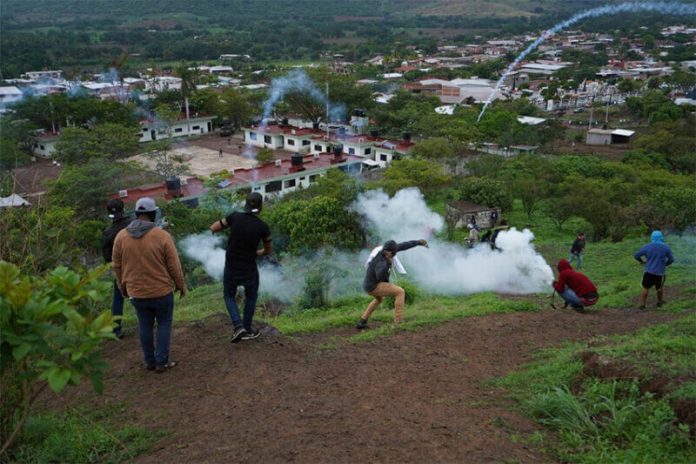The Tierra Caliente region of Michoacán is a war zone and the situation will worsen without federal intervention, according to attendees at a virtual conference organized by public policy think tank México Evalúa.
Jenny Pearce, a political scientist at the London School of Economics who specializes in Latin America, told Tuesday’s security-focused conference that she was extremely concerned about the situation in Tierra Caliente, a notoriously violent region of Michoacán that borders both Colima and Jalisco.
“… I’m hearing a lot from my friends in Tierra Caliente and … they’re suffering displacement, highway blockades [set up by organized crime groups], they can’t get food. It’s really a situation that I acknowledge as a state of war, it is war,” she said.
“The state ultimately has to take this problem seriously. I don’t see any progress if there is no federal policy against what is happening. It’s a war … [and] it needs an immediate response,” Pearce said.
If there is not urgent federal intervention, the “war” will continue to escalate, the academic said, referring to the conflict between the Jalisco New Generation Cartel (CJNG) and the Cárteles Unidos.
Pearce also said there is an urgent need for humanitarian aid in the region and suggested that the intervention of international organizations is required.
Roberto Ramírez, Michoacán coordinator of the security-focused citizens’ organization México SOS, told the conference that municipal police forces must be strengthened in the region and their public security work must be supported by federal forces such as the army and National Guard.
He,and México Evalúa security program coordinator Romain Le Cour cited extortion as a significant problem in the region and Michoacán more broadly. The latter said the problem is prevalent in avocado, lime and banana-producing areas of the state.
Ramírez said that extortion is a problem in markets, noting that crime groups collect payments from stall holders in the municipality of Zamora.
Orlando Camacho, general director of México SOS, said federal intervention is needed to avoid an escalation of the conflict between the CJNG and the Cárteles Unidos.
“… There are very powerful and very violent actions by two … powerful criminal organizations that are giving their all to control the [Tierra Caliente] area,” he said.
Camacho said that civil society has to push the federal government and demand the intervention of federal forces.
“This is one of the things we have to achieve” in order to bring the problem under control, he said.
Mexico News Daily
